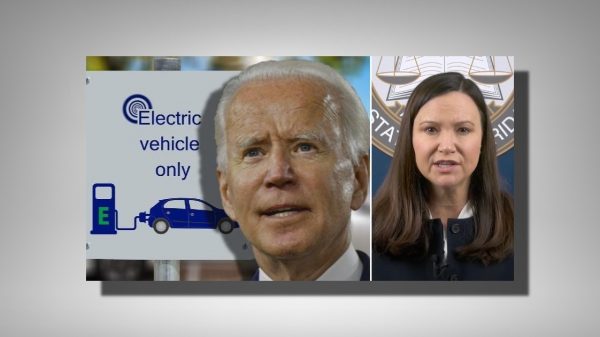This week, U.S. Sen. Marco Rubio, R-Fla., urged Federal Communications Commission (FCC) Chairman Ajit Pai to reexamine Section 230 of the Communications Decency Act in light of instances of censorship and partisan content moderation by social media companies, particularly actions by Facebook and Twitter to restrict user access to a New York Post article on former Vice President Joe Biden’s son, Hunter.
In June, Rubio, along with several of his colleagues, wrote to Pai to request the FCC take a fresh look at Section 230 and clearly define the criteria for which companies can receive protections under the statute. This request was made in light of troubling activities by social media companies, including partisan attempts to silence political speech and efforts to silence critics of the Chinese Communist Party.
The full text of the letter is below.
Dear Chairman Pai:
On June 9, 2020, along with several of my colleagues, I wrote to you regarding the Federal Communication Commission’s (FCC’s) vital role in combating the imbalanced treatment of varying viewpoints on social media platforms and the rising threat to free speech. Recent events, most notably Facebook and Twitter’s decision to censor accounts, posts, and content related to a New York Post article on the foreign business dealings of Hunter Biden, the son of former Vice President Joe Biden, makes clear this is a problem that can no longer be ignored.
The dominance of a small number of social media platforms presents a unique challenge to everyday Americans’ ability to express themselves freely and access uncensored and filtered information. Actions taken by social media companies to censor political speech out of favor with Silicon Valley elites underscores the importance of timely measures to protect free speech and push back against partisan editorializing and politically motivated online speech policing.
The Department of Commerce’s Petition for Rulemaking to the FCC regarding Section 230 of the Communications Decency Act of 1996 issued on July 27, 2020, clearly stated that “large online platforms appear to engage in selective censorship that is harming our national discourse.” The once nascent, scrappy internet companies that benefited from the protections afforded by Section 230 of the Communications Decency Act have become Goliaths intent on twisting and manipulating America’s public square to their liking. The New York Post censorship saga is only the latest example of this consistent effort by Silicon Valley giants. Twenty days before the presidential election, it is also one of the most egregious.
On Twitter, users were presented with a link to a page warning of “potentially spammy or unsafe” material when they attempted to click a link to the article. Twitter even went so far as to forcibly lock the personal account of White House Press Secretary Kayleigh McEnany for sharing the article.
Twitter’s founder Jack Dorsey called the company’s actions “unacceptable,” but only because there was “zero context as to why we’re blocking.” Facebook Policy Communications Manager Andy Stone explicitly stated, in reference to the New York Post article, that his company was “reducing its distribution on our platform.”
Regardless of whether social media companies “provide context” or wait for “third-party fact checking partners” it is abundantly clear that companies like Twitter and Facebook are playing the role of publisher.
As Congress examines and debates the appropriate measures that recognize this reality, I encourage you to proactively engage in the rulemaking process requested by the Secretary of Commerce pursuant to Executive Order 13925. It is time to reexamine Section 230. Platforms that engage in editorial activity must no longer be treated as neutral hosts, and freedom of speech, press, and viewpoint diversity must be protected.
I look forward to continuing to engage with you on this important issue.















